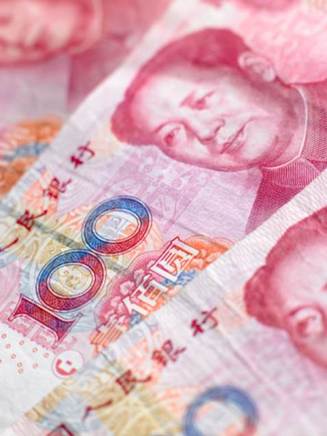Barbecue is an American tradition – of enslaved Africans and Native Americans
The traditional holiday cookout has its roots in the cooperation
between black and indigenous peoples struggling to get or keep their
freedom from colonialists
Barbecue
is a form of cultural power and is intensely political, with a culture
of rules like no other American culinary tradition: sauce or no sauce;
which kind of sauce; chopped or not chopped; whole animal or just ribs
or shoulders. And, if America is about people creating new worlds based
on rebellion against oppression and slavery, then barbecue is the ideal
dish: it was made by enslaved Africans with inspiration and
contributions from Native Americans struggling to maintain their
independence.
The common cultural narrative of barbecue, however, exclusively assigns its origins to Native Americans and Europeans; the very etymology of the word is said to derive from both Carib through Spanish (barbacoa – to roast over hot coals on a wooden framework) or from western European sources (barbe-a-queue in French – “head to tail” – which fits nicely with contemporary ideas of no-waste eating and consuming offal). Some American barbecue masters have taken to attributing the innovation of barbecue to their German and Czech ancestors.
If anything, both in etymology and culinary technique, barbecue is as African as it is Native American and European, though enslaved Africans have largely been erased from the modern story of American barbecue.
At best, our ancestors are seen as mindless cooking machines who prepared the meat under strict white supervision, if at all; at worst, barbecue was something done “for” the enslaved, as if they were being introduced to a novel treat.
In reality, they shaped the culture of New World barbecuing traditions, from jerking in Jamaica to anticuchos in Peru to cooking traditions in the colonial Pampas. And the word barbecue also has roots in West Africa among the Hausa, who used the term “babbake” to describe a complex of words referring to grilling, toasting, building a large fire, singeing hair or feathers and cooking food over a long period of time over an extravagant fire.
In the earliest colonial days, the West Indies served as a seed colonies for the presence of enslaved Africans in the New World especially because, within 10 years of European arrival, indigenous Americans endured mass, genocidal losses due to the introduction of diseases common in Europe. With only a few remaining Carib and Arawak indigenes, Africans quickly became the majority on the islands and, eventually, the Southeastern coast (where many island colonists resettled in the late 17th and early 18th centuries, often with their enslaved people in tow).
In Jamaica, maroon rebels who resisted slavery and formed their own settlements forged ties with rebellious indigenous islanders in the West Indies and Latin America (leading, eventually, to the modern form of barbecue known as jerking). Similar ties were established in the first areas of the United States to see the arrival of enslaved Africans, which occurred in 1526, after Spaniard Lucas Vasquez de Ayllon died in an effort to establish a colony in what we know now as South Carolina. Ayllon’s political successors abandoned the area, leaving behind the enslaved Africans and the Native Americans who had guided them there. With the Spanish had come pigs, which became feral and to this day infest Southern woodlands. It was in that context that barbecue made its debut on what is now American soil.
Enslaved Africans and Native Americans had a lot in common, culinarily-speaking: they had been cooking and eating in similar ways. despite an ocean between their civilizations. It only makes sense that, when their food ways, crops, cooking methods and systems of preservation, hunting, fishing and food storage collided, that there would be deep similarities and convergences of technique, method and skill. And West and Central Africans had always had their own versions of the barbacoa and spit roasting of meat. While living in a tropical climate, salting, spicing and half-smoking meat upon butchering was key to ensuring game would make it back to the village with minimal spoilage. Festivals were marked by the salting, spicing and roasting of whole animals or large cuts of meat.
Thus, in colonial and antebellum North America, enslaved men became barbecue’s master chefs: woodcuts, cartoons, postcards and portraits from the period document the role that black chefs played in shaping this very American, and especially Southern staple. Working over pits in the ground covered in green wood – much as in West Africa or Jamaica – it was enslaved men and their descendants, not the Bubbas of today’s Barbecue Pitmasters, that innovated and refined regional barbecue traditions. If anything, German, Czech, Mexican and other traditions in South Carolina, Missouri and Texas were added to a base created by black hands forged in the crucible of slavery.
In some ways barbecue is true Independence Day food. As European Americans acclimated themselves to the custom of forsaking utensils and even plates to eat more like enslaved Africans and Native Americans – from spareribs to corn on the cob – they used their hands in an unprecedented break with Old World formalities. It is not without some irony that enslaved people, the earliest barbecue pitmasters, were called upon to avail slaveholders and politicians with Fourth of July barbecues meant to win over neighbors and constituents. When they obtained their own freedom, the formerly enslaved celebrated Juneteenth with none other than their favorite freedom food – barbecue.
Barbecue is now widely recognized as a staple of the American culinary canon – so much so that at least three national holidays (Memorial Day, Independence Day and Labor Day) are associated with it. Barbecue is laced with the aspiration of freedom, but it was seasoned and flavored by the people who could not enjoy any freedom on Independence Day for almost a century.
The common cultural narrative of barbecue, however, exclusively assigns its origins to Native Americans and Europeans; the very etymology of the word is said to derive from both Carib through Spanish (barbacoa – to roast over hot coals on a wooden framework) or from western European sources (barbe-a-queue in French – “head to tail” – which fits nicely with contemporary ideas of no-waste eating and consuming offal). Some American barbecue masters have taken to attributing the innovation of barbecue to their German and Czech ancestors.
If anything, both in etymology and culinary technique, barbecue is as African as it is Native American and European, though enslaved Africans have largely been erased from the modern story of American barbecue.
At best, our ancestors are seen as mindless cooking machines who prepared the meat under strict white supervision, if at all; at worst, barbecue was something done “for” the enslaved, as if they were being introduced to a novel treat.
In reality, they shaped the culture of New World barbecuing traditions, from jerking in Jamaica to anticuchos in Peru to cooking traditions in the colonial Pampas. And the word barbecue also has roots in West Africa among the Hausa, who used the term “babbake” to describe a complex of words referring to grilling, toasting, building a large fire, singeing hair or feathers and cooking food over a long period of time over an extravagant fire.
In the earliest colonial days, the West Indies served as a seed colonies for the presence of enslaved Africans in the New World especially because, within 10 years of European arrival, indigenous Americans endured mass, genocidal losses due to the introduction of diseases common in Europe. With only a few remaining Carib and Arawak indigenes, Africans quickly became the majority on the islands and, eventually, the Southeastern coast (where many island colonists resettled in the late 17th and early 18th centuries, often with their enslaved people in tow).
In Jamaica, maroon rebels who resisted slavery and formed their own settlements forged ties with rebellious indigenous islanders in the West Indies and Latin America (leading, eventually, to the modern form of barbecue known as jerking). Similar ties were established in the first areas of the United States to see the arrival of enslaved Africans, which occurred in 1526, after Spaniard Lucas Vasquez de Ayllon died in an effort to establish a colony in what we know now as South Carolina. Ayllon’s political successors abandoned the area, leaving behind the enslaved Africans and the Native Americans who had guided them there. With the Spanish had come pigs, which became feral and to this day infest Southern woodlands. It was in that context that barbecue made its debut on what is now American soil.
Enslaved Africans and Native Americans had a lot in common, culinarily-speaking: they had been cooking and eating in similar ways. despite an ocean between their civilizations. It only makes sense that, when their food ways, crops, cooking methods and systems of preservation, hunting, fishing and food storage collided, that there would be deep similarities and convergences of technique, method and skill. And West and Central Africans had always had their own versions of the barbacoa and spit roasting of meat. While living in a tropical climate, salting, spicing and half-smoking meat upon butchering was key to ensuring game would make it back to the village with minimal spoilage. Festivals were marked by the salting, spicing and roasting of whole animals or large cuts of meat.
Thus, in colonial and antebellum North America, enslaved men became barbecue’s master chefs: woodcuts, cartoons, postcards and portraits from the period document the role that black chefs played in shaping this very American, and especially Southern staple. Working over pits in the ground covered in green wood – much as in West Africa or Jamaica – it was enslaved men and their descendants, not the Bubbas of today’s Barbecue Pitmasters, that innovated and refined regional barbecue traditions. If anything, German, Czech, Mexican and other traditions in South Carolina, Missouri and Texas were added to a base created by black hands forged in the crucible of slavery.
In some ways barbecue is true Independence Day food. As European Americans acclimated themselves to the custom of forsaking utensils and even plates to eat more like enslaved Africans and Native Americans – from spareribs to corn on the cob – they used their hands in an unprecedented break with Old World formalities. It is not without some irony that enslaved people, the earliest barbecue pitmasters, were called upon to avail slaveholders and politicians with Fourth of July barbecues meant to win over neighbors and constituents. When they obtained their own freedom, the formerly enslaved celebrated Juneteenth with none other than their favorite freedom food – barbecue.
Barbecue is now widely recognized as a staple of the American culinary canon – so much so that at least three national holidays (Memorial Day, Independence Day and Labor Day) are associated with it. Barbecue is laced with the aspiration of freedom, but it was seasoned and flavored by the people who could not enjoy any freedom on Independence Day for almost a century.













